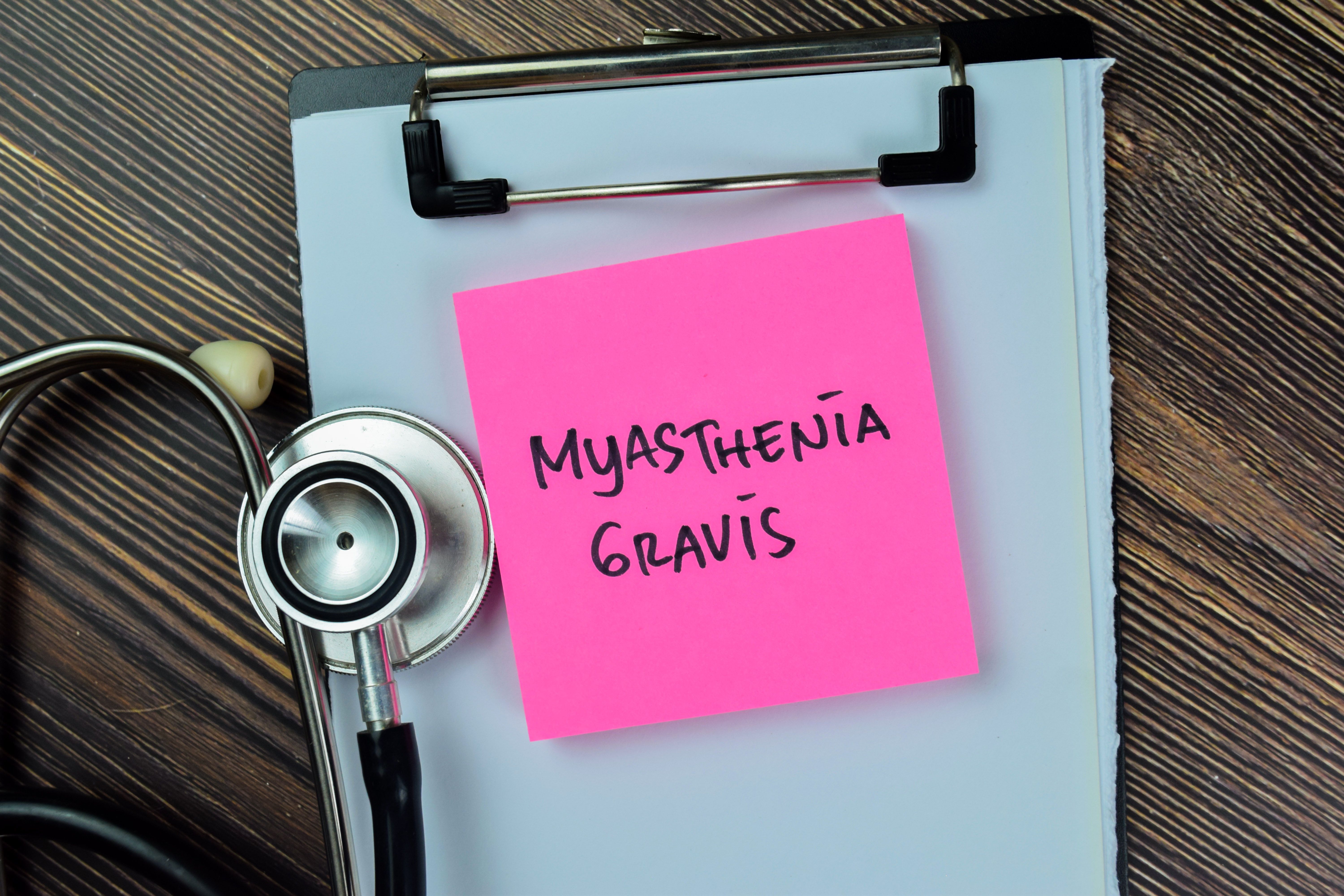- Center on Health Equity & Access
- Clinical
- Health Care Cost
- Health Care Delivery
- Insurance
- Policy
- Technology
- Value-Based Care
Kyverna’s CAR T-Cell Therapy Expands Autoimmune Investigations Into Myasthenia Gravis
The therapy is already being evaluated in patients with lupus nephritis and diffuse cutaneous systemic sclerosis.
This article was first published by CGTLive®. This version has been lightly edited.
The FDA has granted investigational new drug (IND) clearance for an open-label phase 2 trial of Kyverna Therapeutics’ KYV-101 chimeric antigen receptor (CAR) T-cell therapy in 10 patients with myasthenia gravis.1
Myasthenia gravis diagnosis | Image Credit: syahrir - stock.adobe.com

"We have seen firsthand the transformative effects of KYV-101 in MG patients treated with the investigational therapy in our clinic," Prof. Dr. med. Aiden Haghikia, director, Department of Neurology, medical faculty, Otto-von-Guericke University, Magdeburg, Germany, said in a statement.1 "I welcome the FDA's decision and look forward to more clinical data to further our knowledge about CAR T-cell therapy in patients with severe neurological autoimmune diseases."
KYV-101 will be evaluated for safety and tolerability in the new indication in the KYSA-6 trial, and is being evaluated in patients with lupus nephritis in the phase 1 KYSA-1 trial (NCT05938725) in the United States and the phase 1/2 KYSA-3 clinical trial in Germany. For patients with diffuse cutaneous systemic sclerosis (scleroderma), KYV-101 is being assessed in the phase 1/2 KYSA-5 trial in the United States.
"We are grateful that the FDA's decision to clear the IND for our phase 2 KYSA-6 trial will allow Kyverna to offer this potentially paradigm-shifting investigational treatment to patients who may benefit from a deep B-cell depletion and possibly durable reset of their immune system," Peter Maag, PhD, CEO, Kyverna, said in the statement.1
KYV-101 is an autologous fully human CD19 CAR T cell designed to treat B-cell–driven autoimmune diseases; it was in part designed by the National Institutes of Health for oncological indications. Kyverna plans to explore the use of KYV-101 in other autoimmune diseases. The company stated that it had also obtained clearance of 2 additional INDs for investigator-initiated trials of KYV-101 in the United States.
The IND clearance for Kyverna’s scleroderma program was granted in October 2023.2 In September, the company announced that the first patient with lupus nephritis had been treated in the United States and the therapy had been well tolerated with 28 days of follow-up.3 The patient did not experience any immune effector cell–associated neurotoxicity syndrome. The US trial is seeking to recruit 9 to 12 patients with lupus nephritis across several clinical sites.
"We welcome Kyverna's enthusiasm and interest to push forward with their CAR T approach in scleroderma patients with the KYSA-5 trial," Luke Evnin, PhD, chairman of the Scleroderma Research Foundation, said in a statement.2 "We await the results with optimism that CAR T–driven B-cell ablation may ultimately deliver efficacy with adequate safety for a broader range of our patients than immune-ablative chemotherapy alone."
References
1. Kyverna Therapeutics announces FDA clearance of phase 2 IND for KYV-101, a fully human CD19 CAR T-cell therapy to treat myasthenia gravis. News release. Kyverna Therapeutics. November 13, 2023. Accessed November 13, 2023. https://tinyurl.com/4mdkrt5n
2. Kyverna Therapeutics announces FDA clearance of IND for KYV-101, a novel fully human CD19 CAR T-cell therapy to treat scleroderma. News release. Kyverna Therapeutics. October 11, 2023. Accessed November 13, 2023. https://tinyurl.com/4zc4acma
3. Kyverna Therapeutics announces achievement of 28-day post-infusion milestone for first U.S. patient dosed in phase 1 clinical trial of CD19 CAR t-cell therapy for lupus nephritis. News release. Kyverna Therapeutics. September 13, 2023. Accessed November 13, 2023. https://tinyurl.com/5hap92xy
